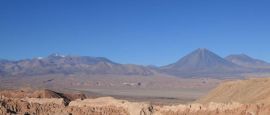Where to stay in Chile
Chile offers a wide range of accommodation options, from international luxury hotels in Santiago to simple guesthouses in remote southern villages. In major cities such as Santiago, Valparaíso and Puerto Varas, visitors will find large chain hotels, boutique properties and well-equipped hostels catering to different budgets.
In wine regions and the Lake District, smaller lodges and countryside hotels provide scenic settings and a quieter pace. Patagonia offers a mix of hotels, eco-lodges and refugios (mountain lodges), particularly near popular trekking routes such as Torres del Paine. During the peak summer season (December to February), advance booking is strongly recommended, especially in Patagonia and Easter Island.
In smaller towns and rural areas, accommodation may be limited and simpler in standard, but generally comfortable. Online booking platforms are widely used, though in very remote areas, it may still be necessary to book directly.
Camping is popular in Chile, particularly in national parks and scenic regions such as Patagonia, the Lake District and parts of the Atacama Desert. Many national parks operate designated campsites with basic facilities, and some private campgrounds offer additional services such as showers and cooking areas.
In Torres del Paine and other protected areas, camping is permitted only in authorised sites and must often be booked in advance. Strict environmental regulations apply, and visitors are expected to follow leave-no-trace principles.
Wild camping may be tolerated in remote areas, but it is not officially permitted everywhere, and travellers should seek permission where appropriate. Weather conditions can change rapidly in mountainous and southern regions, so suitable equipment and preparation are essential.
Do you have any Feedback about this page?
© 2026 Columbus Travel Media Ltd. All rights reserved. No part of this site may be reproduced without our written permission, click here for information on Columbus Content Solutions.




 You know where
You know where